Air filter producers can no longer mask poor quality
Updated: 2016-02-14 09:52
By Zheng Jinran(China Daily)
|
|||||||||||
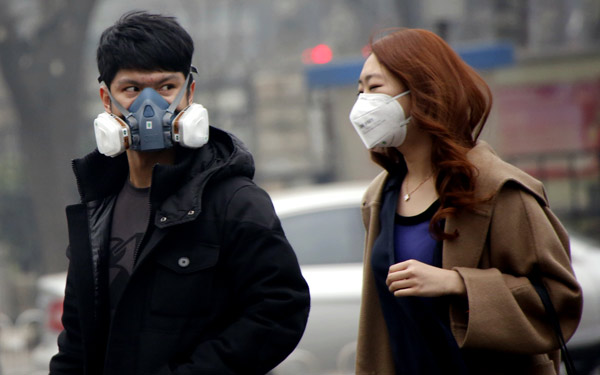 |
|
A couple tackle the pollution in a shopping district amid heavy smog after the capital issued its first ever "red alert" for air pollution on Dec 8, 2015. [Photo/Agencies] |
The first quality standards for pollution filter masks will take effect on March 1 in a bid to regulate the rapidly growing domestic market.
The Group Standard on Protective Masks against PM 2.5 was released on Jan 18, with the goal to regulate filter efficiency. The standard will also ban the use of cancer-causing aromatic ammonia in the fabric and list the details of domestic producers.
PM 2.5 refers to particulate matter with a diameter of less than 2.5 microns that is hazardous to human health.
The China Textile Commerce Association conducted research on facial protective masks and initially drafted the regulations in February 2014.
Li Jianhua, head of the association, said the domestic market has grown quickly due to the frequency of severe smog blanketing many cities.
Though there are quality standards for protective masks used for medical and industrial purposes, no regulations had, up to this point, been released for protective masks on sale to the public.
The lack of unified quality standards caused market confusion as some companies followed standards adopted in European countries and the United States, while some companies did not follow any standards, Li said at a press release to introduce the new regulation on Jan 18.
Of the 37 tested masks from major brands in China, only nine were adequate in filtering airborne pollutants and enabling smooth breathing, said a survey conducted by the China Consumers Association in March 2014.
The sales of masks surged in November and December when many northern cities were enveloped by smog, and Beijing twice issued red alerts.
Data from newrank.cn, an analysis agency, showed mask sales outstripping condom sales online on Nov 23, according to a report from the South China Morning Post.
"I have bought unqualified products online because I don't know the difference and their ads sounded pretty persuasive," said Zhang Yanchen, 28, a Beijing resident.
Regulating the market is vital, he said.
"I don't know what's good without authentic regulations."
Guan Hongtao, 26, is a student of medical science in Australia and said he preferred to use masks designated for industrial purposes, because of their quality and because they are regulated.
"It's hard to believe what some domestic producers claim in their ads for the masks," Guan said.
Related Stories
Flights delayed due to orange alert smog at Beijing Airport 2015-12-26 09:34
China to promote cleaner heating to fight smog 2015-04-30 10:38
Beijing mayor urges tackling smog 2015-03-22 10:51
Today's Top News
Stocks fall in China after holiday week
Putin, Obama discuss Syrian crisis over phone
Global stock swings not caused by China factors
Russian PM warns against 'new cold war' at MSC
Einstein's gravitational waves detected
As Chinese celebrate, rest of world benefits
UK's Pinewood film studios eyes China expansion
'China's continuous growth benefits UK and the world'
Hot Topics
Lunar probe , China growth forecasts, Emission rules get tougher, China seen through 'colored lens', International board,
Editor's Picks

|
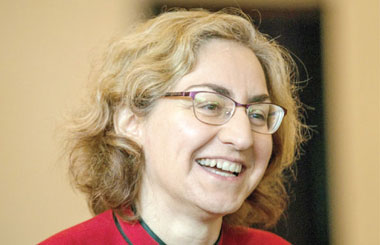
|
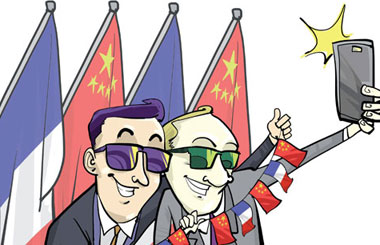
|
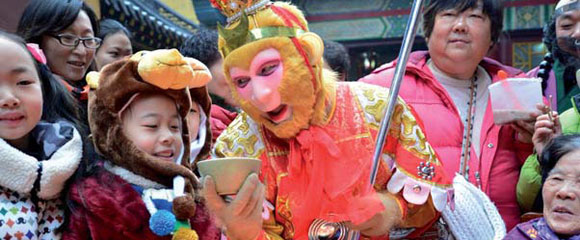
|
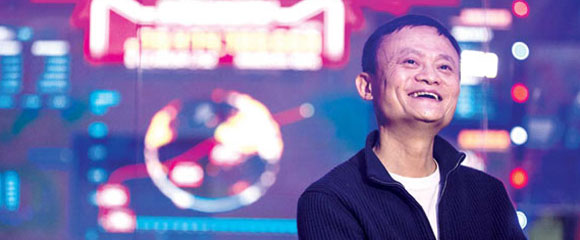
|

|






